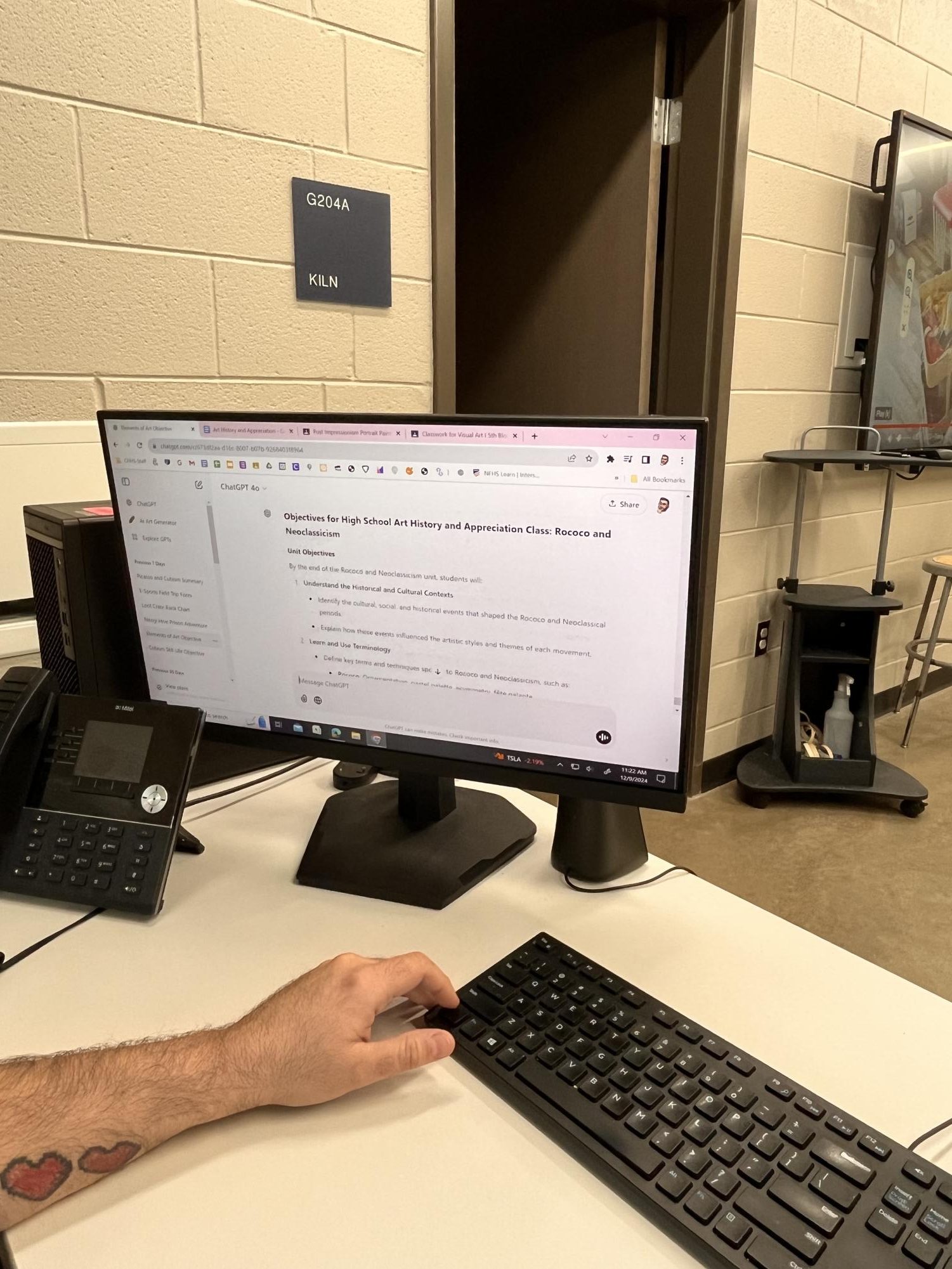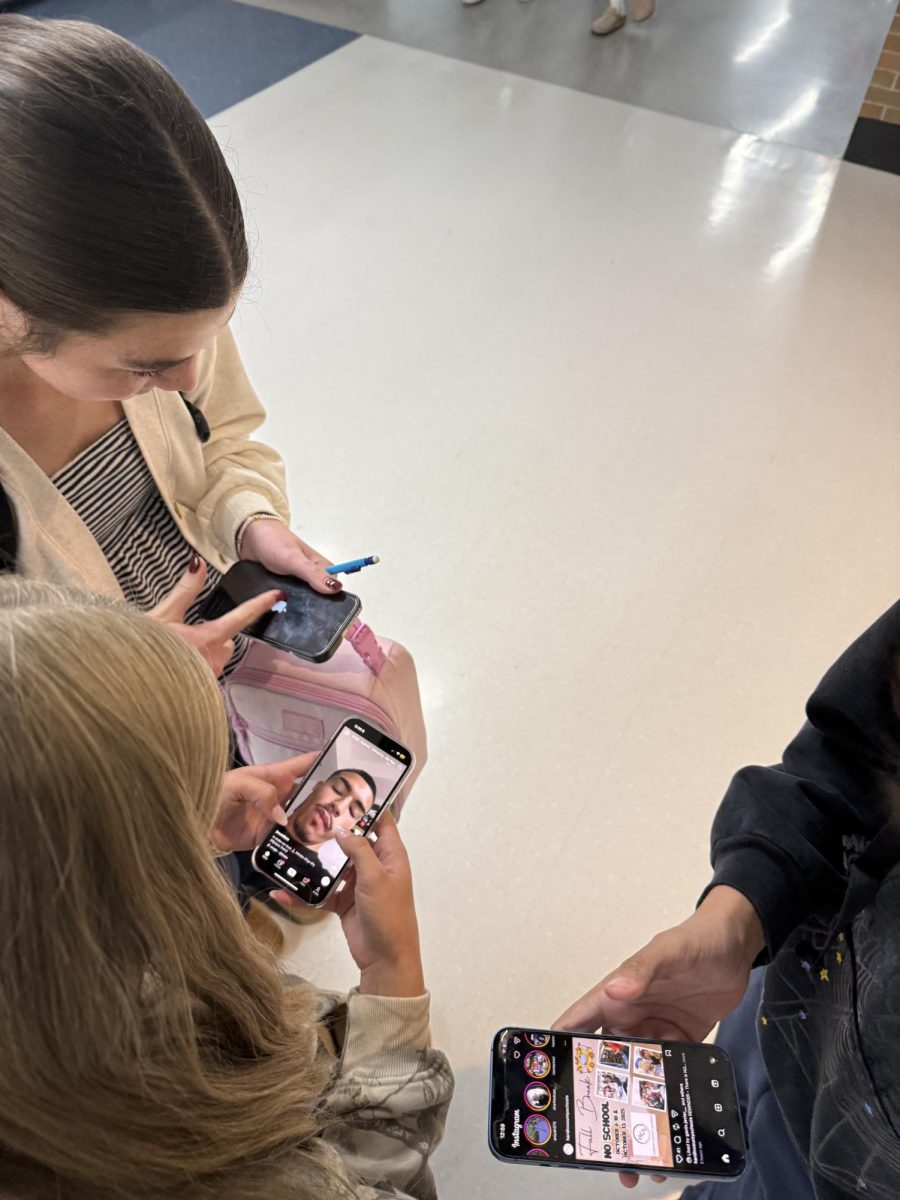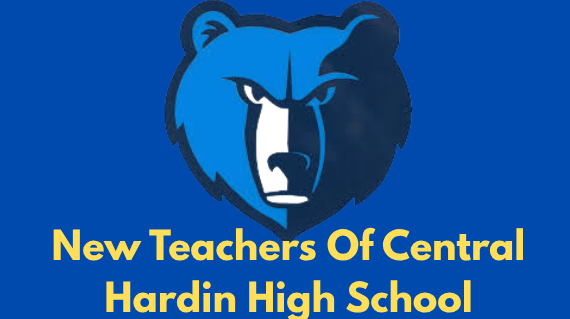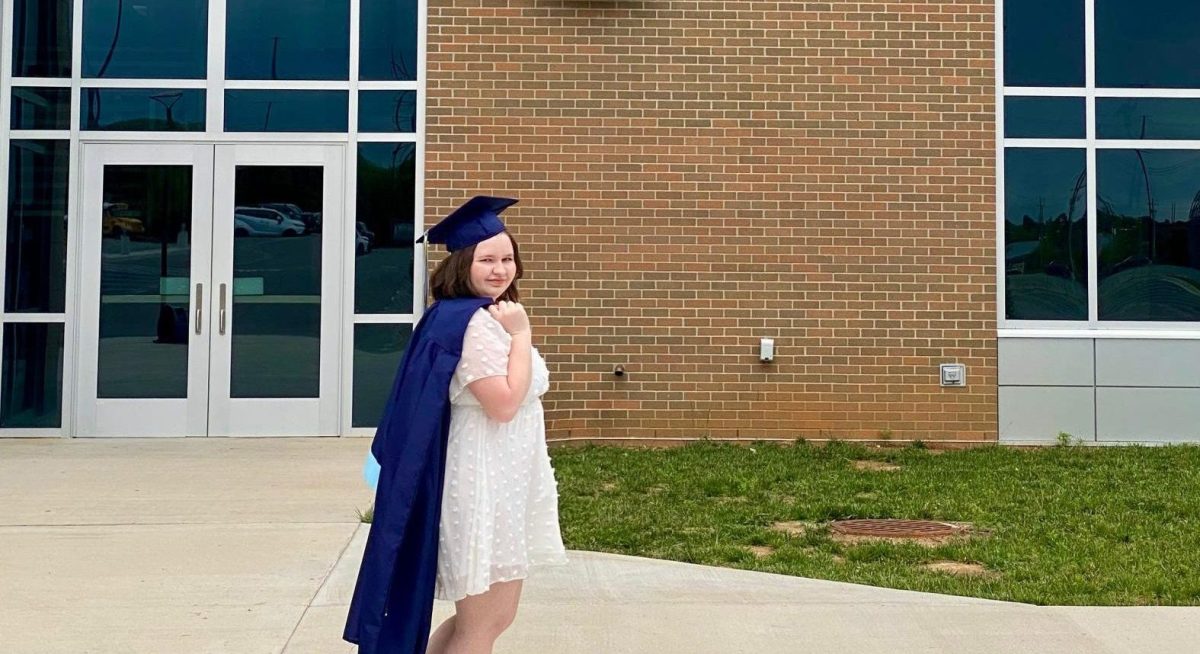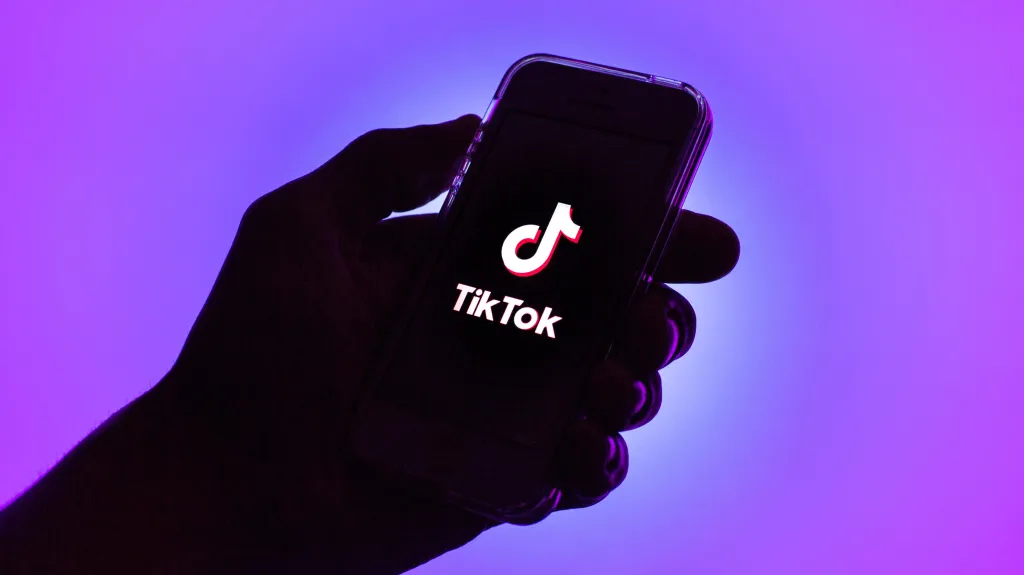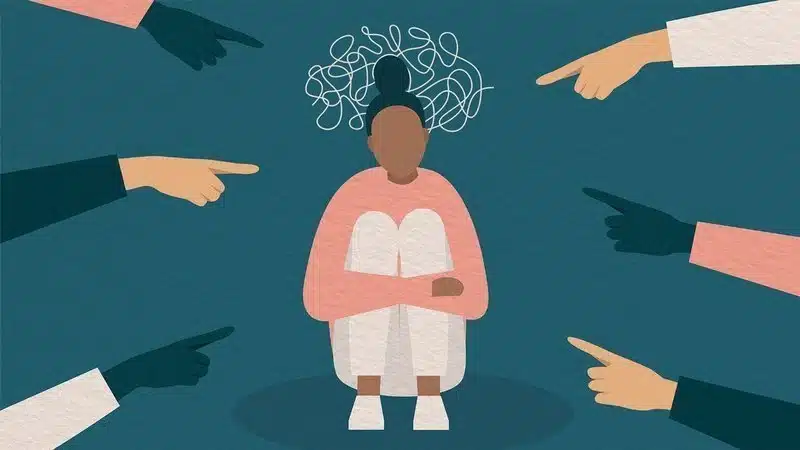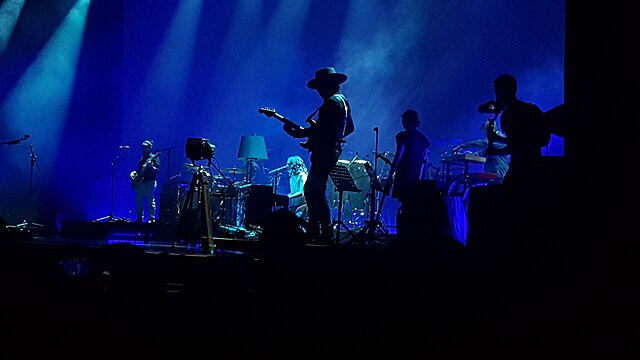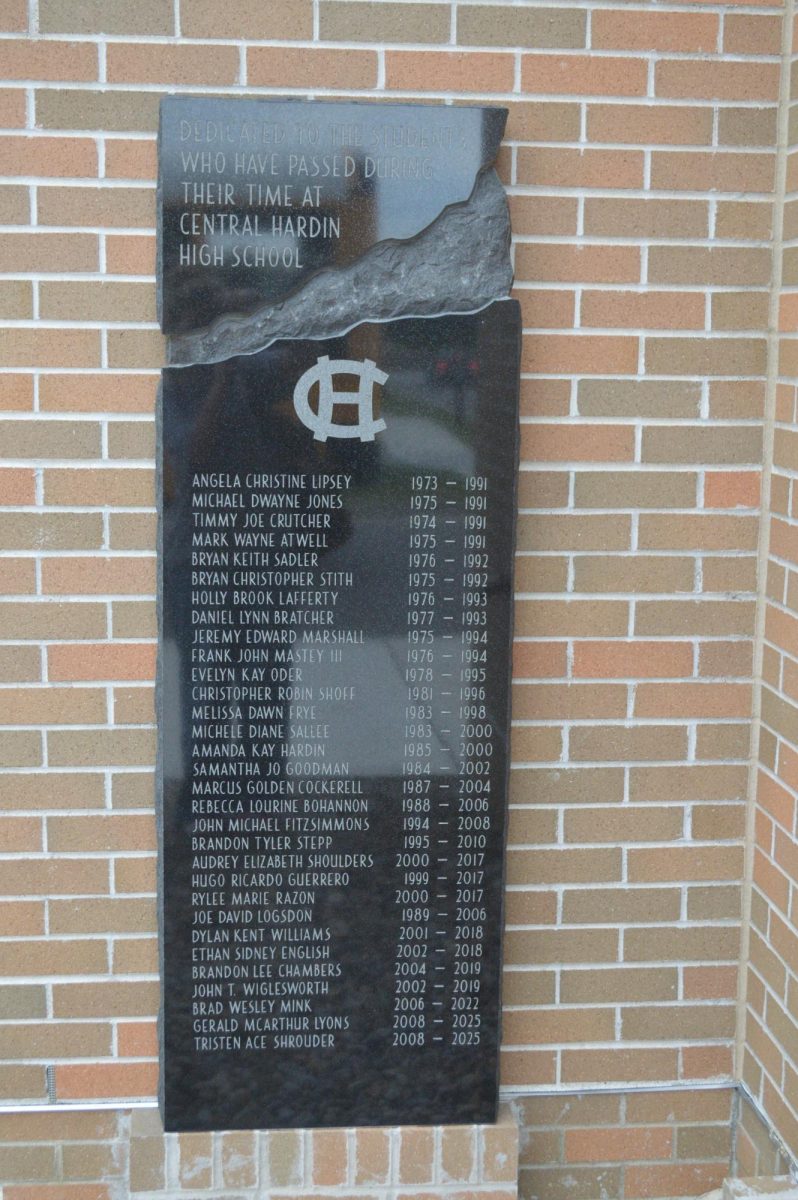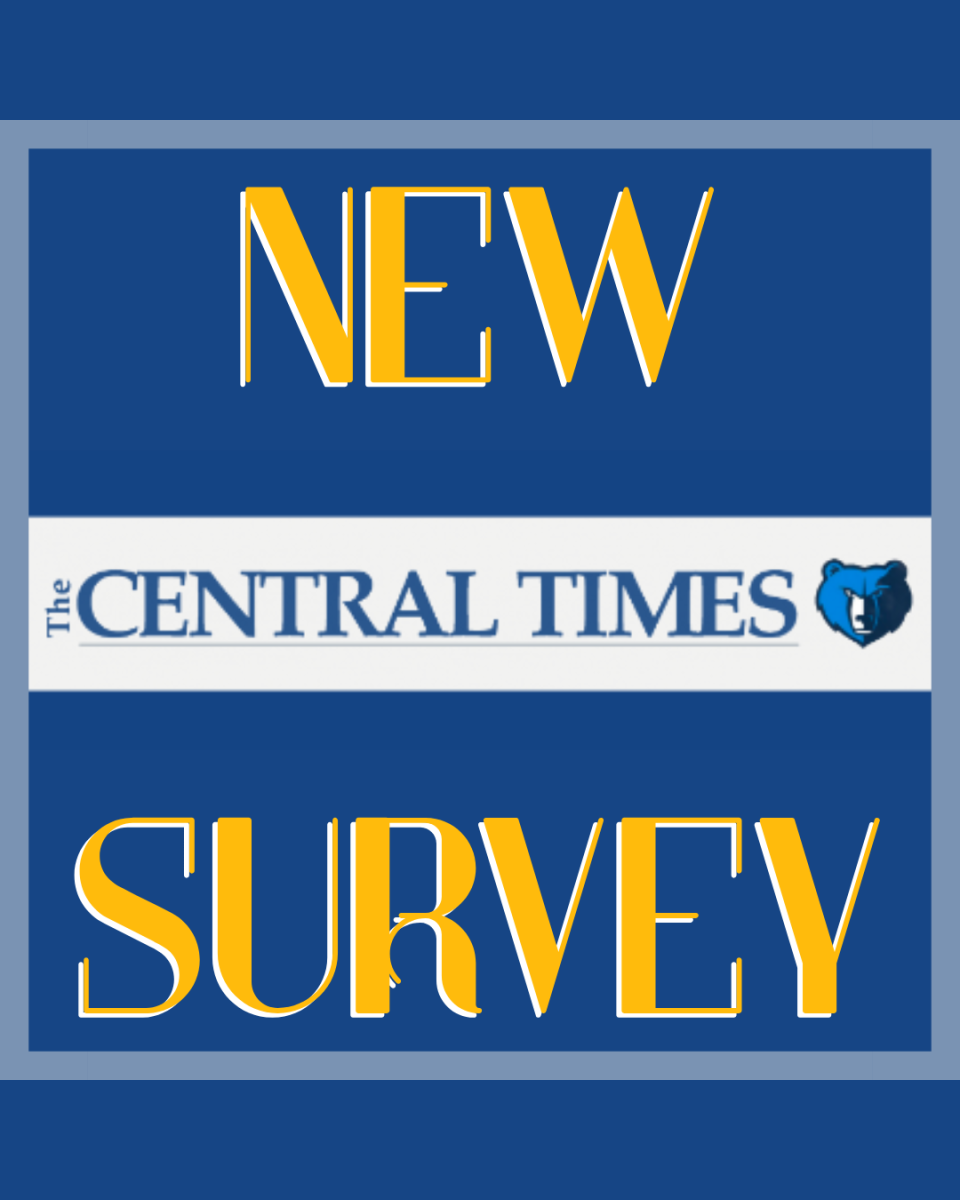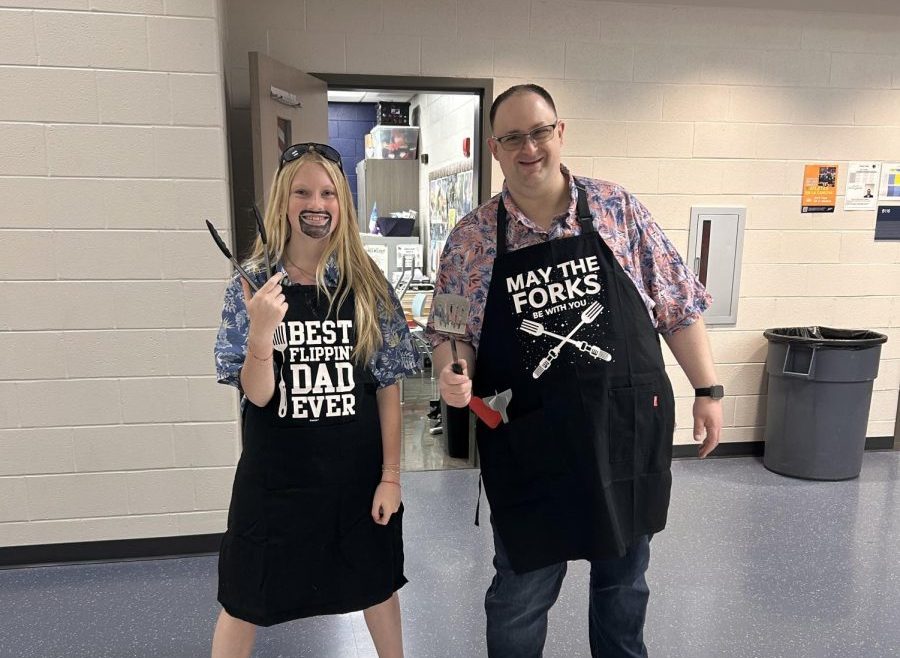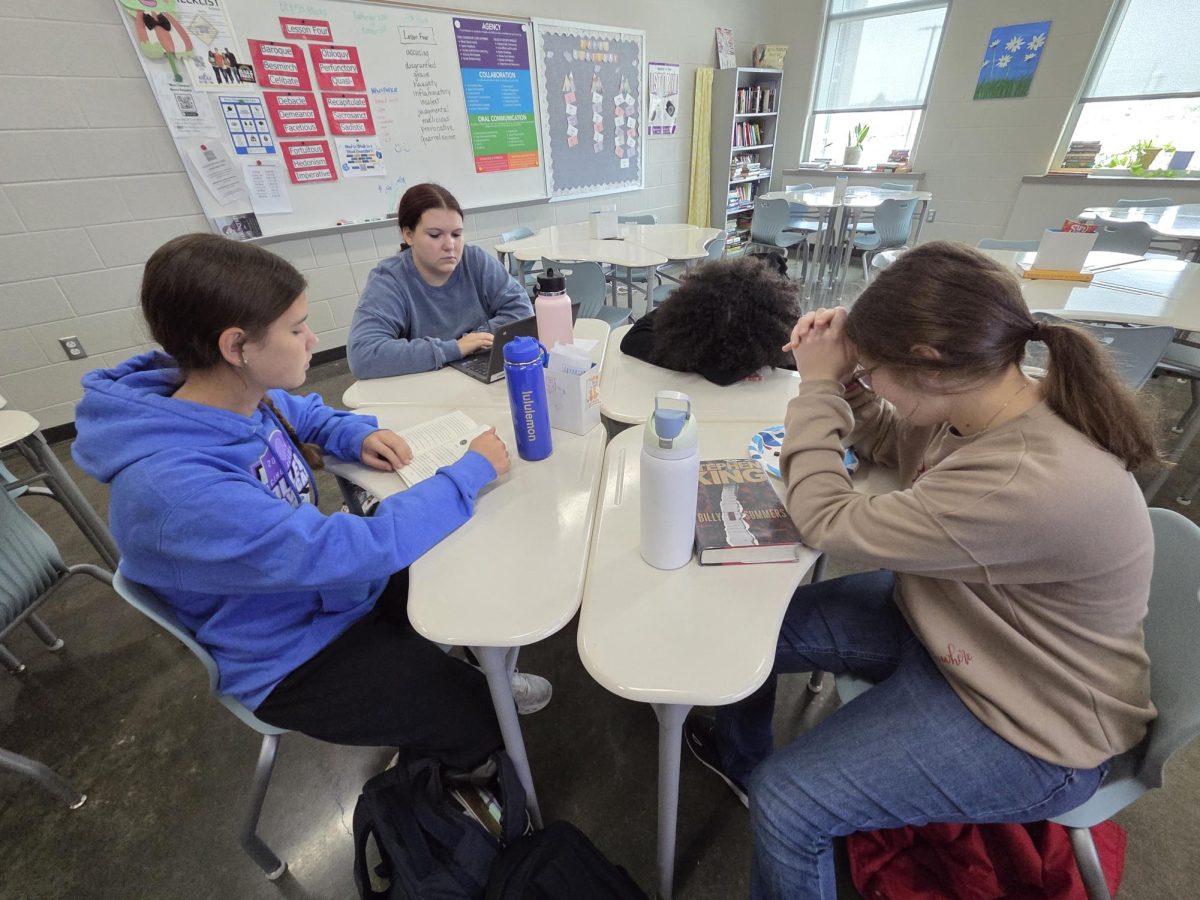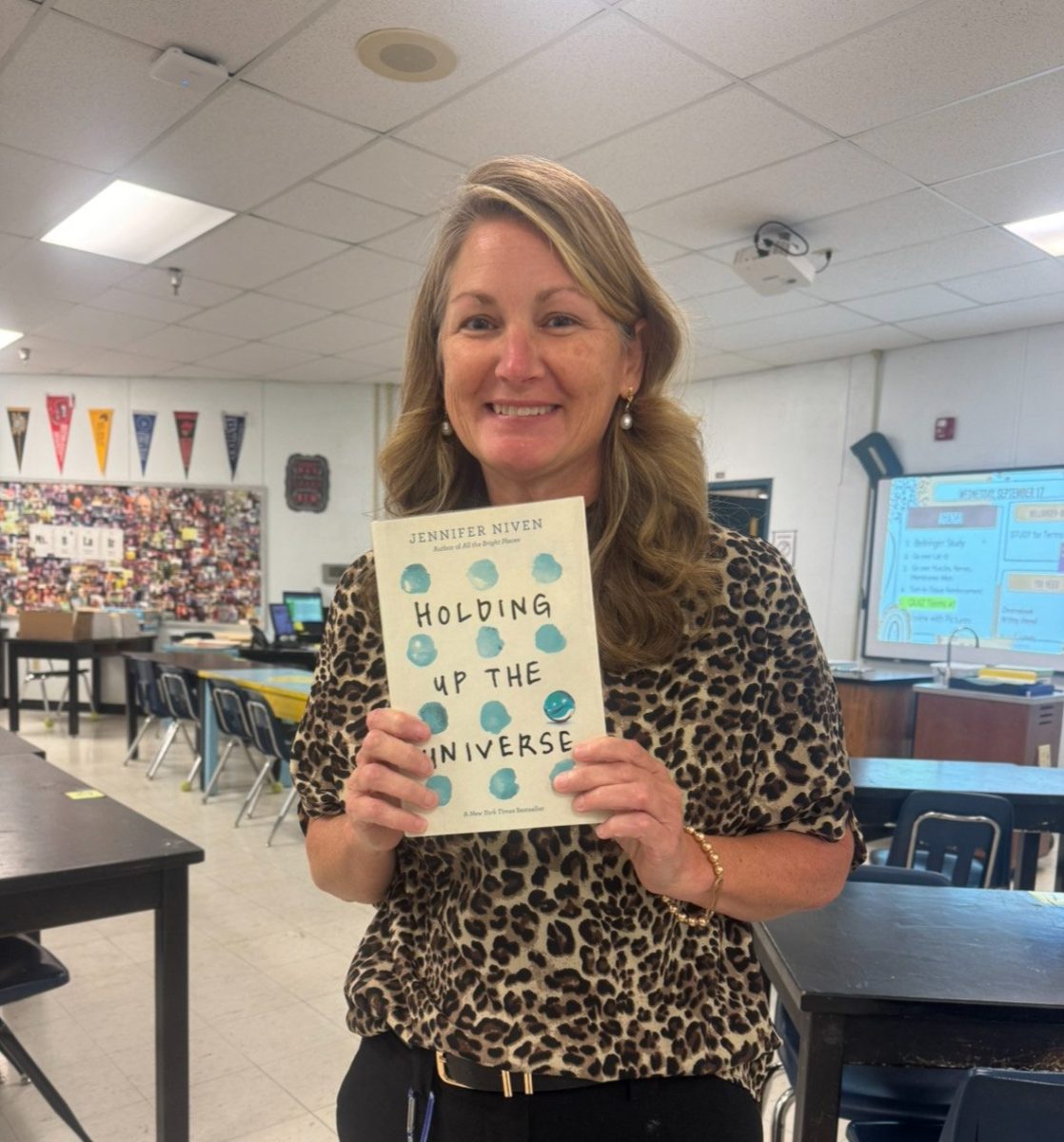It’s everywhere now. Artists, writers, businesses, young workers, students, and teachers are feeling its effects, its evolved machine-learning that may one day best the human brain. It sounds like a dystopian future, but in reality, AI’s increased presence in our lives will be more nuanced. In this new world of advancement, how we utilize AI is the issue.
Recently, Hardin County Schools’ District Technology Coordinator Caitlyn Farrow, Chief Academic Officer Greg Sutton, and Superintendent Teresa Morgan created a policy proposal around the use of AI in classrooms, giving teachers a red-light, green-light system to explain if brainstorming or checking work with AI is appropriate for a particular assignment.
Additionally, Farrow is working on making a Microsoft AI platform available to all students. The district officials are waiting for the company to release a version available for minors in school.
Considering these efforts by HCS officials, it is worth stepping back to discern just how drastically the world will change. Many teachers are worried about what this means for our dependence on technology.
In just the two years since ChatGPT’s launch, 63% of 16 surveyed teachers at Central said they have caught a student claiming AI’s work as their own. Although teachers haven’t noticed a drastic increase in cheating, the ones who do may go undetected for longer as chatbots improve.
English teacher Susan Sherrard found a poem about cheating with AI. The lines “but what are you trying / to be free of? / The living? The miraculous / task of it?” resonated with her, because as students choose to let AI do their work for them, they are becoming more chained to it, avoiding a more authentic learning experience.
“Students are getting lost in their devices and forgetting how to think critically,” English teacher Jeff Crady said.
A scarcity of critical thinking could have grave consequences for our communities, political systems, and increasingly globalized world.
Nonetheless, if used correctly, AI could be the best, most efficient tool in a student’s arsenal.
According to librarian Sarah Bauer, a program called Khanmigo will revolutionize math class because it “interacts with students in real-time” and enables teachers to personalize assignments to each student’s skill level. Having such a tool would be a game changer, especially for students who struggle with math.
AI can also proofread your papers when the teacher isn’t there.
“It’s a great tool for students to use to review their work once they have finished their own writing,” English and Creative Writing teacher Rosalie Batistoni said. “AI offers review options to give feedback on form and structure or whether they had responded to the prompt correctly.”
After graduating high school, our careers will continue to be affected by AI. For many jobs, AI can streamline tasks dealing with paperwork, giving people the freedom to be more creative.
AI is already reducing teacher burnout, making the learning experience more enjoyable for students and teachers alike.
“I’ve seen a lot of teachers have some joy again because they’re able to offload some of those tasks,” Farrow said.
We tend to believe that robots will just take over a job, but in reality, AI is making human work more productive.
Visual Art teacher Antonio Menendez also leans into a more positive perspective, believing that every technological revolution that has brought about controversy isn’t necessarily bad. Digital art was once seen as illegitimate, but it was only a matter of time before it became commonplace.
Senior Riley Daley, interested in computer science, has hope for the changing field.
“The jobs that need the creativity and ingenuity of the human mind could never be replaced, it is impossible to get the same results in those fields with artificial intelligence because it is just that: artificial,” Daley said. “We barely understand the human mind as it is, there is no way we could come anywhere near replicating the way it functions with technology for many, many years.”
AI is not the first innovation to threaten real learning, the job market, and creativity, and it surely isn’t the last. As the tides of time surge on, we find ourselves with more power at the tips of our fingers – power that can cause radical change, for better or worse. As the generation of social media and AI, we need to take full advantage of our resources – including AI – in a way that solves our problems instead of evading them. There is a world of possibilities to uncover with AI if we only use it right.


